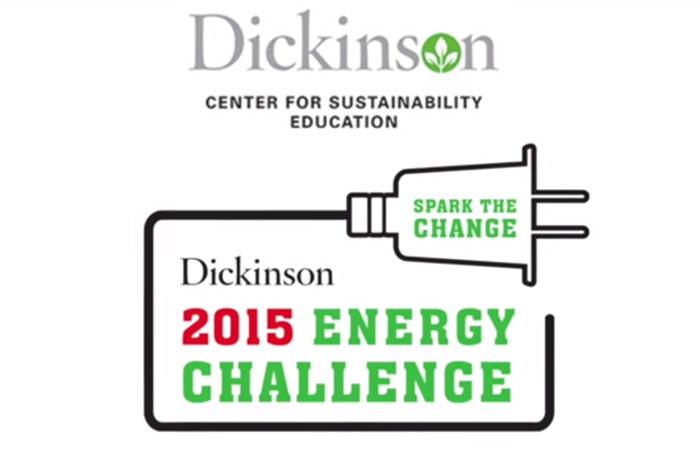Spark the Change

Energy Challenge
Residence halls compete to save energy during 2015 Energy Challenge
by MaryAlice Bitts-Jackson
Kill the phantom. Do it in the dark. Unplug and go outside. These are the weekly themes for this year’s Energy Challenge, an initiative that brings the campus community together in pursuit of a common goal—to reduce energy consumption and carbon emissions at Dickinson and, ultimately, beyond.
The challenge kicks off Monday, March 16, with Desserts in the Dark, an awareness-raising event featuring local cookies, fudge and ice cream, glow-in-the dark Frisbee and night corn hole and volleyball. As in years past, the challenge features a three-week residence-hall competition, with prizes for the buildings with the greatest energy savings and an April 10 award ceremony and bonfire on Morgan Field.
"The idea is to provide fun and interactive platforms to get everyone across campus thinking about energy-behavior changes they can make to reduce the amount of energy that they consume," says student supervisor Makalea Branch ’15 (policy management, environmental studies), one of 22 Eco-Reps and four Center for Sustainability Education (CSE) interns who are leading the way.
Energy-use data from 15 residential buildings will be collected from March 16 through April 4; meters on three of the buildings will be read and inputted manually, while data from the remaining 12 will be automatically updated and posted via a Web-based meter-reading system that displays the statistics in real time. "That transparency is key, because it allows us all to see exactly how our day-to-day decisions directly impact our buildings’ energy use, CO2 emissions and energy costs," says CSE Assistant Director Lindsey Lyons.
And that insight, in turn, helps build sustainable habits that continue to help shape our environment after the finale bonfire is extinguished, says Ken Shultes ’89, associate vice president for sustainability & facilities planning and host of the Sustainability Jam Hour, a weekly radio show on WDCV-FM that underscores these themes.
"These small changes," Shultes adds, "can ultimately reduce Dickinson’s carbon emissions by thousands of pounds—an important step toward the college’s goal of reaching carbon neutrality by 2020."
Learn more
- 2015 Energy Challenge
- Sustainable Dickinson
- "Low Energy, High Marks"
- "Up for the Challenge"
- Latest News
Published March 11, 2015